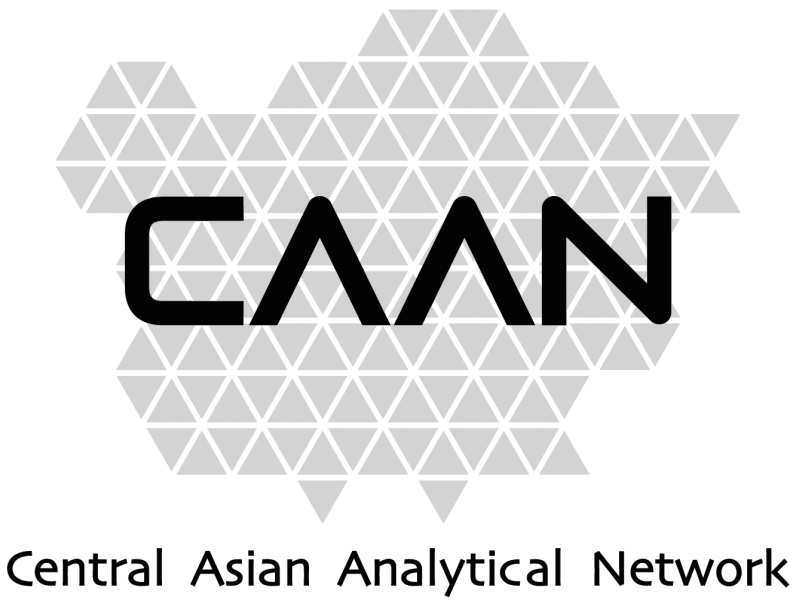Central Asian Analytical Network
Marlene Laruelle, George Washington University
More than the rest of the post-Soviet space, the Central Asian region has a chronic and acute lack of young experts; and the opportunities for professionals to hone their analytical skills are few and far between.
While having a cadre of independent experts and analysts is critical for these countries, in Central Asia, television is entirely state-controlled; Western-sponsored websites are under increasing political pressures or blocked; and non-governmental print media regularly incur legal and extra-judicial attacks. Local print media outlets are disappearing at an alarming rate: few people are ready to pay for newspapers; printing is costly; and distribution challenging. Websites and social media are gaining in popularity: they are consulted for both entertainment purposes, and, increasingly, as an alternative to state-controlled information. Their reach is still limited but their audience growth is impressive.
Additionally, Russian media offensives have produced high-quality (counter-) information in recent years. Due to its slick production and omnipresence, Russian media leaves a massive imprint on Central Asian public space, whether in Russian or in the national languages, which guarantees Moscow the support of a large share of local public opinions.
The state of academia is more optimistic. Several foreign universities, based in Kyrgyzstan and Kazakhstan, now train young Central Asian scholars; and several hundreds of master and PhD students are studying abroad in the U.S., Europe, and Asia. But the picture also has many shades of grey: none of the Academy of Sciences’ programs recovered from the post-Soviet collapse, which means that disciplines not connected to the job market are disappearing (many of the humanities, ancient history, manuscripts study). Additionally, corruption in the higher education system is endemic; and Turkmenistan, Uzbekistan and Tajikistan’s universities display low levels of intellectual professionalism, whatever the good will of the faculty and the student body. In the whole region, academic publications are of poor quality, and Central Asian students and scholars have difficulties accessing international peer-reviewed journals, not only because of their limited knowledge of English but also, more profoundly, for not mastering Western theoretical knowledge in social sciences and analytical skills.
With this assessment, George Washington University’s Central Asia Program (CAP) decided to become a training hub for young social scientists and public policy experts from Central Asia. In 2013, the Open Society Foundations provided funds to CAP to create a fellowship program whose goal was for young Central Asian professionals to become the next generation of policy experts. Fellows are provided with opportunities to develop their research, analytical, and communication skills, and to build lasting intellectual networks of exchange with the U.S. scholarly and policy communities. Fellows are in residence at GW for a five-month period and are closely mentored and guided by the program directors and CAP staff.
In April 2015, alumni of the fellowship partnered with CAP to launch the Central Asian Analytical Network, a unique Russian language web platform.  CAAN’s medium-term goal is to become a reference website for public policy debates in Central Asia, and to develop a pool of young experts. The long-term goal is to transform the Network into an independent, financially sustainable think-tank, offering academically-grounded content with strong public policy foci. CAAN works as a place for networking, connecting the various scholars and analysts – journalists, social activists, bloggers, and policy experts – and integrating different local initiatives. CAAN offers both policy-oriented op-eds and scholarly analytical pieces that demonstrate critical thinking. The Network strives to become a “democracy”-learning tool, making it possible to demonstrate the importance of having divergent points of view expressed jointly and with respect for other perspectives. It publishes young authors from the five Central Asian countries, and introduces Western scholarly
CAAN’s medium-term goal is to become a reference website for public policy debates in Central Asia, and to develop a pool of young experts. The long-term goal is to transform the Network into an independent, financially sustainable think-tank, offering academically-grounded content with strong public policy foci. CAAN works as a place for networking, connecting the various scholars and analysts – journalists, social activists, bloggers, and policy experts – and integrating different local initiatives. CAAN offers both policy-oriented op-eds and scholarly analytical pieces that demonstrate critical thinking. The Network strives to become a “democracy”-learning tool, making it possible to demonstrate the importance of having divergent points of view expressed jointly and with respect for other perspectives. It publishes young authors from the five Central Asian countries, and introduces Western scholarly
production to Central Asian readers through interviews with scholars on their latest research, and translations of book reviews.
For more information, please visit: http://centralasiaprogram.org/blog/tag/central-asia-analytical-network/
Marlene Laruelle is the Director of the Central Asia Program, Associate Director and Research Professor at IERES, George Washington University.
